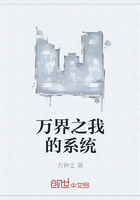It was the time of year when old Rouault sent his turkey in remembrance of the setting of his leg. The present always arrived with a letter. Emma cut the string that tied it to the basket, and read the following lines:--
"My Dear Children--I hope this will find you well, and that this one will be as good as the others. For it seems to me a little more tender, if I may venture to say so, and heavier. But next time, for a change, I'll give you a turkeycock, unless you have a preference for some dabs; and send me back the hamper, if you please, with the two old ones. I have had an accident with my cart-sheds, whose covering flew off one windy night among the trees. The harvest has not been overgood either. Finally, I don't know when I shall come to see you. It is so difficult now to leave the house since I am alone, my poor Emma."
Here there was a break in the lines, as if the old fellow had dropped his pen to dream a little while.
"For myself, I am very well, except for a cold I caught the other day at the fair at Yvetot, where I had gone to hire a shepherd, having turned away mine because he was too dainty. How we are to be pitied with such a lot of thieves! Besides, he was also rude.
I heard from a pedlar, who, travelling through your part of the country this winter, had a tooth drawn, that Bovary was as usual working hard. That doesn't surprise me; and he showed me his tooth; we had some coffee together. I asked him if he had seen you, and he said not, but that he had seen two horses in the stables, from which I conclude that business is looking up. So much the better, my dear children, and may God send you every imaginable happiness! It grieves me not yet to have seen my dear little grand-daughter, Berthe Bovary. I have planted an Orleans plum-tree for her in the garden under your room, and I won't have it touched unless it is to have jam made for her by and bye, that I will keep in the cupboard for her when she comes.
"Good-bye, my dear children. I kiss you, my girl, you too, my son-in-law, and the little one on both cheeks. I am, with best compliments, your loving father.
"Theodore Rouault."
She held the coarse paper in her fingers for some minutes. The spelling mistakes were interwoven one with the other, and Emma followed the kindly thought that cackled right through it like a hen half hidden in the hedge of thorns. The writing had been dried with ashes from the hearth, for a little grey powder slipped from the letter on to her dress, and she almost thought she saw her father bending over the hearth to take up the tongs.
How long since she had been with him, sitting on the footstool in the chimney-corner, where she used to burn the end of a bit of wood in the great flame of the sea-sedges! She remembered the summer evenings all full of sunshine. The colts neighed when anyone passed by, and galloped, galloped. Under her window there was a beehive, and sometimes the bees wheeling round in the light struck against her window like rebounding balls of gold. What happiness there had been at that time, what *******, what hope!
What an abundance of illusions! Nothing was left of them now. She had got rid of them all in her soul's life, in all her successive conditions of lifemaidenhood, her marriage, and her love--thus constantly losing them all her life through, like a traveller who leaves something of his wealth at every inn along his road.
But what then, made her so unhappy? What was the extraordinary catastrophe that had transformed her? And she raised her head, looking round as if to seek the cause of that which made her suffer.
An April ray was dancing on the china of the whatnot; the fire burned; beneath her slippers she felt the softness of the carpet; the day was bright, the air warm, and she heard her child shouting with laughter.
In fact, the little girl was just then rolling on the lawn in the midst of the grass that was being turned. She was lying flat on her stomach at the top of a rick. The servant was holding her by her skirt. Lestiboudois was raking by her side, and every time he came near she lent forward, beating the air with both her arms.
"Bring her to me," said her mother, rushing to embrace her. "How I love you, my poor child! How I love you!"
Then noticing that the tips of her ears were rather dirty, she rang at once for warm water, and washed her, changed her linen, her stockings, her shoes, asked a thousand questions about her health, as if on the return from a long journey, and finally, kissing her again and crying a little, she gave her back to the servant, who stood quite thunderstricken at this excess of tenderness.
That evening Rodolphe found her more serious than usual.
"That will pass over," he concluded; "it's a whim:"
And he missed three rendezvous running. When he did come, she showed herself cold and almost contemptuous.
"Ah! you're losing your time, my lady!"
And he pretended not to notice her melancholy sighs, nor the handkerchief she took out.
Then Emma repented. She even asked herself why she detested Charles; if it had not been better to have been able to love him?
But he gave her no opportunities for such a revival of sentiment, so that she was much embarrassed by her desire for sacrifice, when the druggist came just in time to provide her with an opportunity.














